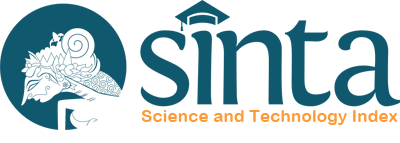Tubo-Ovarian Abscess: in Dr. Zainoel Abidin Banda Aceh Hospital: a Case Report
Abstract
Background: Blood transfusion is an important part of modern health services. When used properly, transfusion can save patient’s life and improve health. Blood transfusion has risk of transmitted infectious diseases through blood transfusion (TTI) especially HIV / AIDS, Hepatitis C, Hepatitis B, and Syphilis, and Malaria, Dengue Fever (DHF) can only be done in endemic areas, as well as other transfusions which can be life threatening.
Method: This was descriptive study with cross sectional approach and sampling techniques using secondary data with total population method. From the sample of 23,875 samples (12,305 (2017) and 11,573 (2018)), it was seen which results of TTI reactive from donor data to be included in finding research objects.
Results: In 2017 HbSAg reactive TTI parameters 1.7%, Anti HCV 0.5%, HIV Ag / Ab 0.7%, and Treponema 4% and TTI reactive results in donors in 2018 HbSAg parameters 1.3%, Anti HCV 0.3%, HIV Ag / Ab 0.25% and Treponema 2.2%. Comparison of donor TTI screening results in Blood Center of North Aceh-Indonesia in the period 2017-2018 changes in the ratio of TTI reactive numbers in the HbSAg parameter of 0.4%, Anti HCV 0.2%, HIV Ag / Ab 0.45% and Treponema 1.8% in period 2018.
Conclusion: Although the reactive rate in 2017 is relatively high, in 2018 the reactive TTI level shows a decline. This condition can be caused by two factors: (1) Implementation of donor selection was good with good data collection and documentation system. (2) The inspection method carried out affects the results of the existing inspection.
Downloads
 Viewer: 962 times
Viewer: 962 times
 PDF downloaded: 8050 times
PDF downloaded: 8050 times











